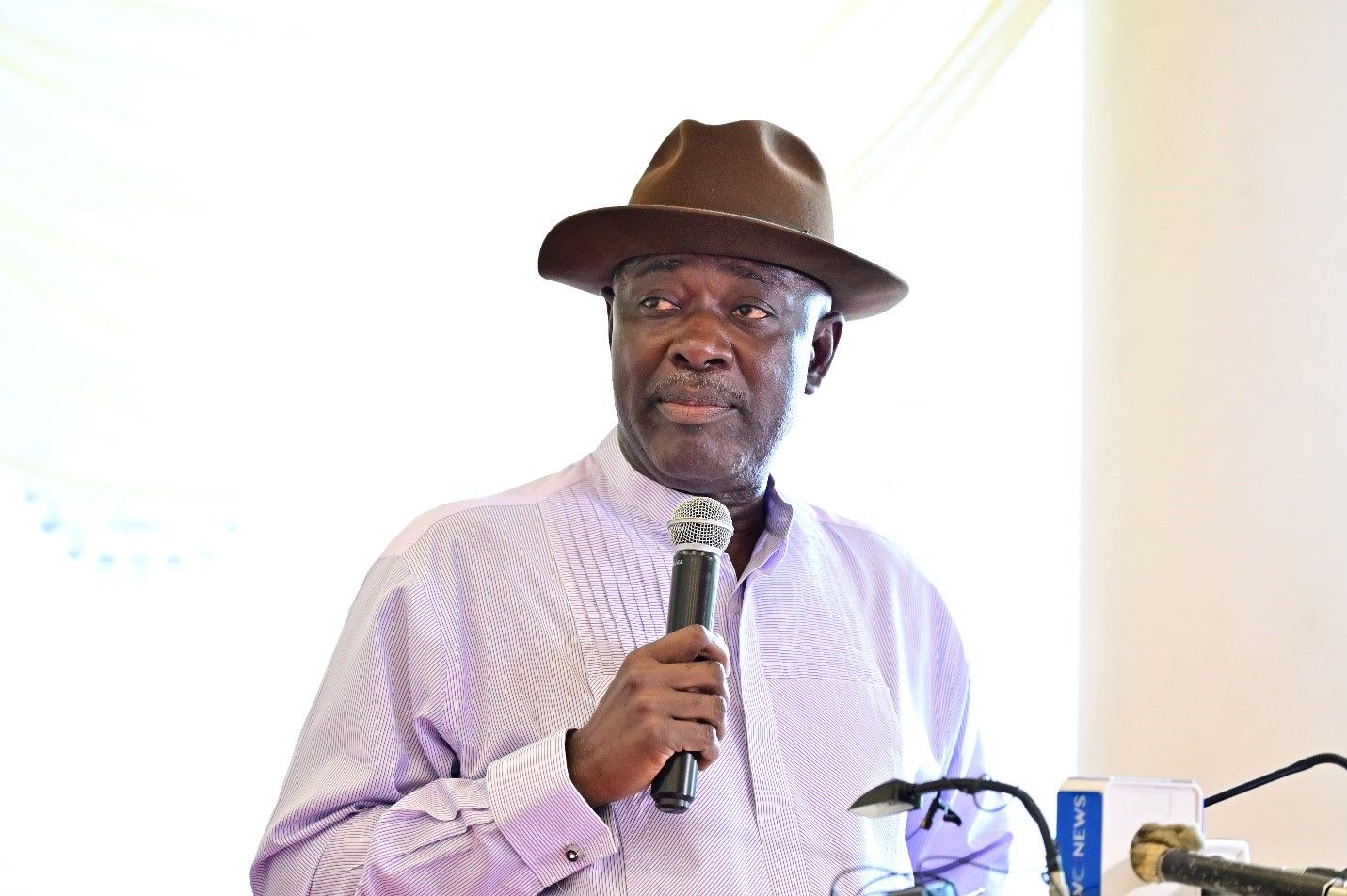Rachel Mushabati, a Namibian Senior Associate Attorney at CLG Global in an opinion article titled, ‘Unleashing Africa’s Next Big Play: Namibia’s Emerging Oil and Gas Sector’, recently chronicled development in the country’s oil and gas sector, concluding that “Namibia is quickly rising to the top of Africa’s oil and gas exploration and investment destinations because of notable discoveries and a favourable investment climate.”
Namibia remains the toast of the international oil giants at the moment after embarking on the first exploration activities in 2022.
For the first time since the South African country attained independence in 1990, significant discoveries were made in the country’s Orange Basin in 2022 and 2023 – which include the Graff-1, Venus-1, and Jonker-1X exploration projects.
This subsequently attracted oil and gas giants including TotalEnergies, Shell, Chevron and ExxonMobil, as well as multinational energy corporations such as Galp and QatarEnergy.
- Terrorists’ attack: Niger Republic’s traditional rulers on sympathy visit to Yobe
- DSS prosecutes 3 #EndBadGovernance protesters, releases 6 in Kaduna
In 2024, Galp Energia, Custos, and NAMCOR discovered a high-quality light oil discovery in the Mopane-1X well, located within the same orange basin.
Following the discovery, the government has positioned the country to be the next oil and gas frontier, developing policies that attract IOCs and investors to the fast growing industry with a view to developing new fields, encouraging other activities within the value chain.
In addition, the government of Namibia, is also seeking industry-specific training and capacity building for the oil and gas sector.
According to Mushabati, “One of the primary drivers of Namibia’s attractiveness as an investment destination is its supportive government and investor-friendly policies.”
He noted that the government implemented “A range of initiatives to foster a conducive environment for oil and gas investments” among which is the Namibia’s Investment Promotion Act described as “a pivotal component in the country’s strategy to attract and support investors.”
“This comprehensive legislation provides a range of incentives to enhance the financial viability of projects and reduce initial costs,” it added.
Furthermore, the Act “ensures robust legal protections, safeguarding investors’ property rights and offering non-discriminatory treatment compared to domestic investors.”
“By streamlining licensing processes and providing one-stop-shop service, the Act simplifies the investment process and reduces bureaucratic hurdles. Additionally, it supports priority sectors such as oil and gas, reinforcing Namibia’s commitment to fostering a transparent, stable, and investor-friendly environment.”
Concurrently, Namibia places a strong emphasis on sustainability and environmental stewardship. The government and industry stakeholders are committed to responsible investment practices that protect local communities and ecosystems.
Investors who prioritize these practices will not only contribute to positive environmental and social outcomes but also bolster their own reputation and long-term success in the market,” the article added.
What the Namibian government is doing from all indications is to have a solid regulation in place for the anticipated oil boom and implement policies that would promote investments into the sector.
This is what is said to be driving the interest of the multinational oil firms in the exploration activities in the embryonic Namibian oil and gas industry.
This is in addition to the country’s general positive investment climate which is attracting the investing public in agriculture-related businesses, mining, the tourism sector, among others.
Namibia has been rated high in terms of getting electricity and paying taxes, which shot up its rating in the ease of doing business index and it has recently invested in promoting tourism and the hospitality business in Namibia.
Though Namibia is a relatively smaller country with just a little above 3m estimated population, about the size of Ebonyi, a state in South-East Nigeria; analysts say the stability in the country and government investor-friendly policies have been driving the investors to the state.
With the development in the oil and gas sector which promises to improve the country’s gross domestic product of N12.91 billion USD, according to the World Bank, Namibia hopes to emerge as the fastest growing investment destination in Africa.
Experts believe while Nigeria is not bereft of policies and regulations especially in the oil and gas sector, implementation and corruption have plagued the sector and undermined the potentials of the sector.
They said opportunities in Nigeria’s oil and gas are vast and can be further tapped to improve the economic conditions of the people by attracting more investors to develop many idle oil fields in Nigeria.
However, despite the implementation of the Petroleum Industry Act (PIA) which replaced existing regulations guiding the oil and gas industry, the recent exit of multinationals is a cause for concern for stakeholders.
One industry analyst who pleaded anonymity said, “The fact is the IOCs are frustrated. So they are selling all their onshore assets and focusing on deep water because they are frustrated. They are investing in other countries.
“The other time the TotalEnergies global CEO said they went to Angola to invest $6bn and he gave reasons why they didn’t do it in Nigeria.”
CEO of TotalEnergies, Patrick Pouyanne, in May explained during a panel discussion at the Africa CEO forum in Kigali, Rwanda in May said the inconsistency in policy-making decisions led to the diversion of the project from Nigeria to Angola, where there is a more stable policy framework.
The oil boss stated that although the Niger Delta is the most productive region in West Africa, the erratic policy environment has made investment untenable, disclosing that the company has not conducted exploration activities in the region for 12 years.
He said, “Nigeria loves to open topics without closing them. You love to debate. There is always a new legislature in Nigeria about a new petroleum law. When you have such permanent debates, it’s difficult for investors looking for long-term structure to know what direction to go.
“In reality, the Niger Delta is the most prolific part of West Africa. But if you look at what happened, because of these debates, there has not been a single exploration in Nigeria for 12 years.
“It’s important to have a debate and then settle it and put a framework on the table that investors can trust.
“We have countries that have perfectly integrated policies like Angola. So, we went to Angola and announced a very large $6 billion project at the beginning of the week because their framework is stable. So we know where we go,” Pouyanne said.
Speaking with our correspondent, Dr Garuba Dauda, the current Director of the Centre for Democracy and Development who has worked extensively in the oil and gas sector observed that corruption and lack of transparency is responsible for the challenges in Nigeria’s oil and gas sector.
He said, “What is happening in Namibia is nothing usual. The country is in a frenzy. It’s only expected to let it continue while it lasts.
“The IOCs are good at looking for new discoveries and opportunities in countries where they can easily play on expectations to manipulate things to their advantage. Recently, I was involved in a research on the future of natural resources governance where we engaged in the development in Namibia against the backdrop of the global energy transition.
“The fact is that all old and emerging oil producers are in a race to exhaust their oil reserves amidst the fear of a potential trapped asset. The competition that this provokes is what you see in Namibia.
“The UK has also issued over a hundred licenses in the North Sea – India, Brazil, Angola, Canada, as well as Saudi Arabia and Russia are all liberalising investment policies aimed at making the best out of their oil before the transition is fully achieved. Even Nigeria’s PIA 2021 is construed in that context. It’s just that the sector is constrained by a complex of socio-economic and political factors, including corruption.”
Observers believe Nigeria as the giant of Africa needs to reposition itself as the true giant by implementing policies aimed at promoting transparency and accountability in its oil and gas sector.

 Join Daily Trust WhatsApp Community For Quick Access To News and Happenings Around You.
Join Daily Trust WhatsApp Community For Quick Access To News and Happenings Around You.


